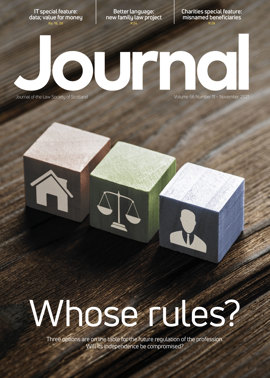Automatism and civil claims
Shockwaves reverberated through the cycling community recently when a jury returned a “not proven” verdict against a car driver, Jordan McDowall, following a trial at the High Court in Glasgow.
The 21-year-old was acquitted of causing the death of 51-year-old cyclist, Kevin Gilchrist, a husband and father of three, by dangerous driving in 2018.
McDowall pled not guilty to the charge, claiming that she had no recollection of the incident and there was a gap in her memory.
Many in the Scottish cycling community questioned whether the decision of the jury meant that you could get off with anything by simply claiming that you can’t remember the incident. This was not a case where the driver argued she had some new or sudden medical condition, of which she was not previously aware – she stated that she simply could not recall what had happened and explained there was a “gap” in her memory.
Colin Allanach, chair of Scottish Cycling Grampian and the Grampian Cycle Partnership, commented: “Is it open season on cyclists now?” As a cyclist myself, it’s hard to not to agree with him. However, while the young driver was able to walk free from the High Court at the end of her trial, it is still possible that another charge could be brought if further evidence is discovered.
Although the decision is controversial, the legal defence behind it is perhaps even more so and wasn’t widely reported in the coverage of the case. To be convicted of most crimes, it must be shown that you have criminal intent – either through wickedness or recklessness. However, if it can be shown that the accused was not in control of their actions due to no fault of their own and had no knowledge of the incident, then a defence of automatism can be argued and can be sufficient to secure acquittal. Automatism is one of the six special defences to a crime in Scotland (along with self-defence, necessity, alibi, incrimination and insanity). For example, if a driver with no previous medical history, suddenly and without warning suffers an epileptic fit whilst driving and kills or injures another road user, they could use the defence of automatism against criminal charges.
Civil defence?
While automatism is a defence to criminal charges, what is its place in civil law? Is it fair and equitable that it can also be used as full defence in civil cases, thus denying compensation to those injured or bereaved by a driver who had no control of their actions at the point of collision?
In civil cases for damages, it is up to the injured person to establish negligence. There can be no negligence if the action of a driver is involuntary. This means that compensation can be denied to those injured through no fault of their own. Take the same example above, where the driver who suffers an unexpected epileptic fit causes life-changing injuries to a young woman, meaning she will suffer lifelong pain and will never work again. The driver is fully insured and yet despite a valid policy of insurance, the young woman cannot recover compensation for her injuries and loss.
Where automatism is argued in a civil case, it is up to the defender, often an insurer, to establish their policyholder was not in control of their actions. Careful investigation of these cases can defeat the defence of automatism, often by scrutiny of medical records and detailed investigation as to the general health of a driver in the days prior to the collision. However, I would argue that in a legal system where there is already in place compulsory insurance for drivers, the defence of automatism ought to be removed for civil cases, to allow those injured through no fault of their own, to obtain compensation for their injuries and tragically, as was the case for the family of Kevin Gilchrist, the loss of their loved ones.
Regulars
Perspectives
Features
Briefings
In practice
Online exclusive
In this issue
- Good legal software suppliers listen to you
- The trends that will shape law firms in 2022
- Technology won't solve everything...
- Key trends in legal tech adoption for UK law firms
- The top 4 benefits of moving to a cloud solution
- Why cyber risk management is not the same as IT support
- Business growth: finding the right package






